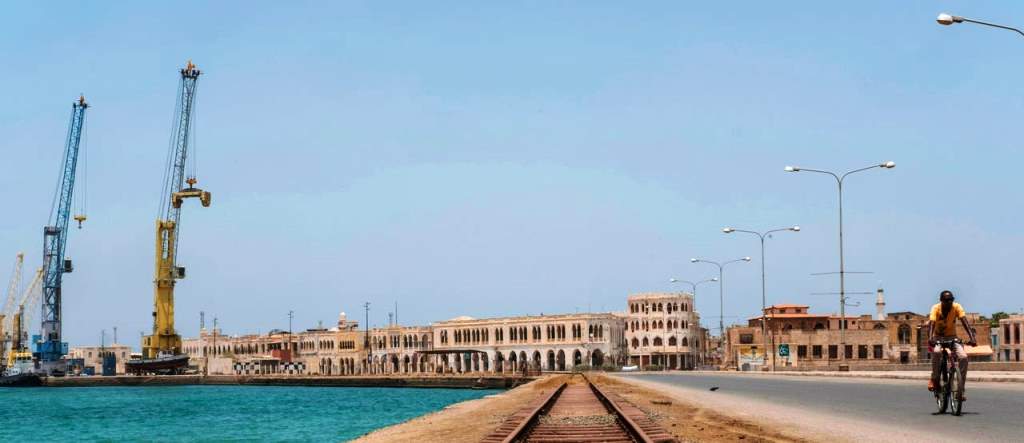But it was not long before their sense of security dissipated. Rumors abounded about intelligence officers surveilling Tigrayans on behalf of the Ethiopian and Eritrean governments.
Then, late last month, in an incident that sparked an outcry in Kenya and attracted international attention, two men dragged a prominent businessman of Tigrayan descent out of his Bentley and into a Subaru as he sat in Nairobi traffic. A traffic officer appeared in a widely shared video to be holding the door of Samson Teklemichael’s car open to assist his captors. Teklemichael could be heard pleading for bystanders to record his capture.
More than two weeks after Teklemichael was taken, it is not clear who was responsible or what their motivation was, said Kenya police spokesman Bruno Isohi Shioso. Police are still investigating, he said, and seeking tips from the public.
Mulugeta, one of the four Tigrayan friends living in Nairobi, was so shaken he did not leave the apartment for two days.
“I felt free,” he said. “But now my hope is lost.”
For more than a year, Ethiopia has been engulfed in a civil war that has claimed thousands of lives and put hundreds of thousands at risk of famine. The fighting between Ethiopian Prime Minister Abiy Ahmed’s government forces and rebels led by the Tigray People’s Liberation Front (TPLF) began as a political power struggle and is now increasingly driven by ethnic rivalries.
Human rights groups warn that Teklemichael’s disappearance is an ominous indicator of the long reach of Abiy, who just two years ago won the Nobel Peace Prize. He has referred to leaders of the TPLF, which dominated the country’s politics for three decades and is resented by many non-Tigrayan Ethiopians, as “cancer” and “weeds.”
Abiy’s spokeswoman Billene Seyoum declined to comment for this story. Another government spokesman, Legesse Tulu, did not respond to requests for comment.
U.S. special envoy for the Horn of Africa Jeffrey Feltman said during a news conference that he would look into the alleged abduction, adding that reports of police in Addis Ababa going door-to-door arresting Tigrayans were alarming. The United States, Canada, Denmark, the Netherlands and the United Kingdom on Tuesday condemned reports of mass detentions of Tigrayans by the Ethiopian government, saying arrests without charges “likely constitute violations of international law and must cease immediately.”
“The brazen daylight abduction of Mr. Teklemichael on a busy Nairobi street has left many people shaken,” said Irũngũ Houghton, executive director for Amnesty International Kenya. “The collapse of the rule of law that we have seen in Addis Ababa, with thousands of Tigrayans being arrested on the streets, that chaos, that lawlessness, must not be allowed to show up in Kenya.”
Teklemichael’s wife, Milen Haleform Mezgebo, said in an interview that she had not heard from her husband since he was taken. Fearing for the safety of their three children, she pulled them out of school.
Mulugeta and his three friends limit their interactions with new people. When they see other Ethiopians on the street, they wonder if they are spies. Citing security concerns, they spoke on the condition that they be identified only by their second names.
The men are part of what analysts say is likely a large network of Tigrayans living illegally in Nairobi, unrecognized by the Kenyan government or UNHCR, the United Nation’s refugee agency. There were only 168 refugees from Tigray officially registered in Kenya in 2020 and 2021, said UNHCR spokeswoman Eujin Byun, and they have been transferred to Kakuma, one of Kenya’s refugee camps, per the government’s policy. The pandemic has contributed to a backlog of processing requests, Byun said.
Ethiopian asylum seekers must come through Kakuma to complete the refugee registration process, said Joseph Kotolo, Kenya’s head of refugee status determination. But the men in Nairobi said they worry about their health and safety at Kakuma, where nearly 200,000 people live in often bleak conditions. They believe the thousands of Ethiopians living there could pose a threat, although spokespeople for UNHCR and Kenya’s refugee agency said they had not heard reports of any attacks targeting Tigrayans at Kakuma.
The four men acknowledged, though, that their legal limbo contributes to their fear. They have repeatedly called the U.N. hotline, trying to secure status as legal refugees.
Teklemichael was “a businessman and a legal person who had been living in Kenya for a long time,” Mulugeta said. “I am not a businessperson. I am not a legal person. I have no money. … If he was abducted, what about us?”
After fighting broke out last November in Ethiopia’s mountainous north, each of the men experienced a different version of the terror that forced them to leave.
Mulugeta, who was in Addis Ababa, said he was repeatedly punched by a police officer and dragged to a makeshift prison where he was detained for 40 days.
Hailay and Kahsay, who worked together in the Tigray region’s health department, said they watched bombs kill two pharmacist colleagues in the hills of Abiy Addi in December. Hailay, 28, and Kahsay, 26, tried unsuccessfully to resuscitate the men, who had been walking dozens of feet ahead of them. There was no time to bury the bodies, they said, because more bombs were coming. They alleged the bombs were dropped by the Ethiopian government.
Teklemariam, 27, a childhood friend of Hailay, said he ran from Eritrean soldiers who repeatedly shot at him after taking control of his hometown, Enticho. Soldiers looted his family’s farm, he said, taking grain, shoes, clothes and cooking supplies.
When he traveled to Tigray’s capital last winter to pick up his paycheck, he called Hailay. With Kahsay, they devised a plan.
“The only choice,” Teklemariam said, “was to escape from that horror.”





